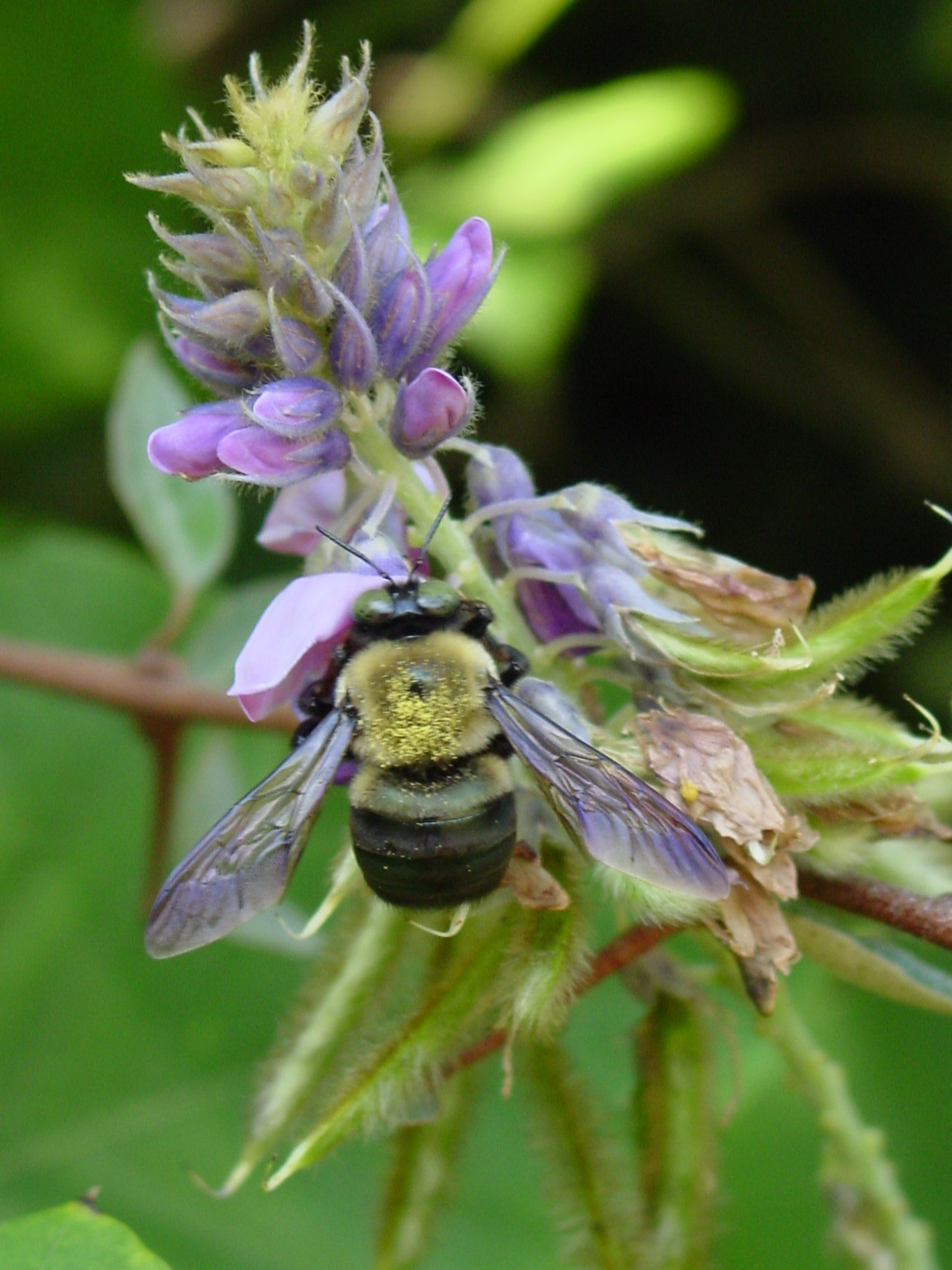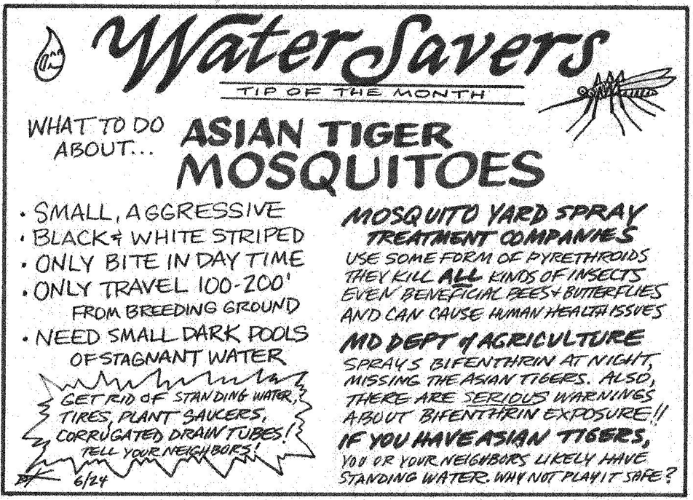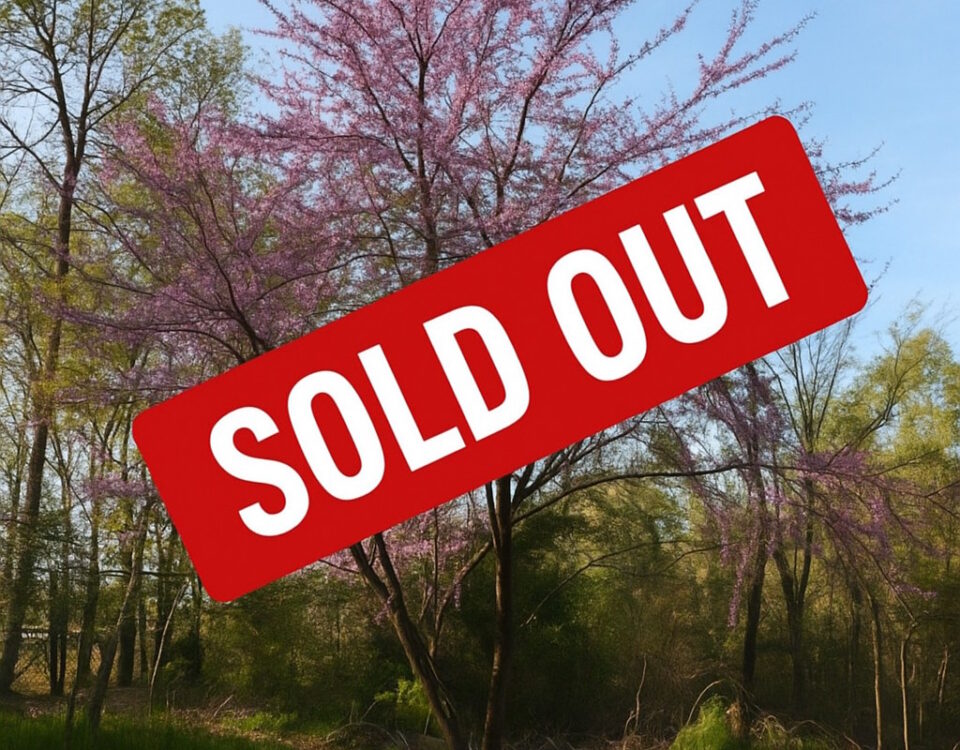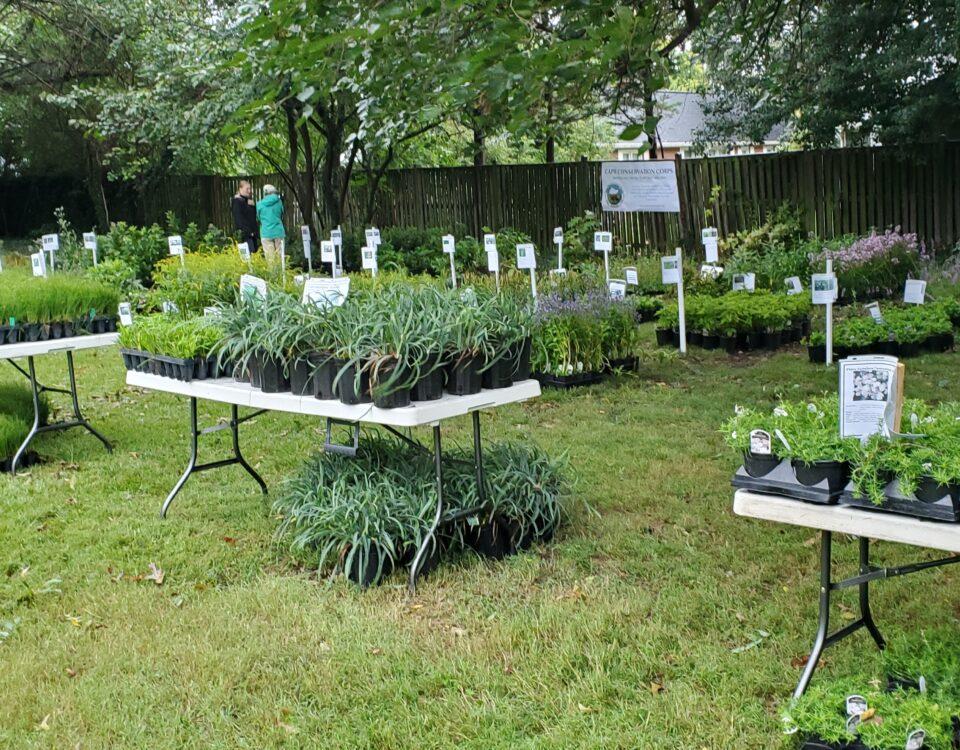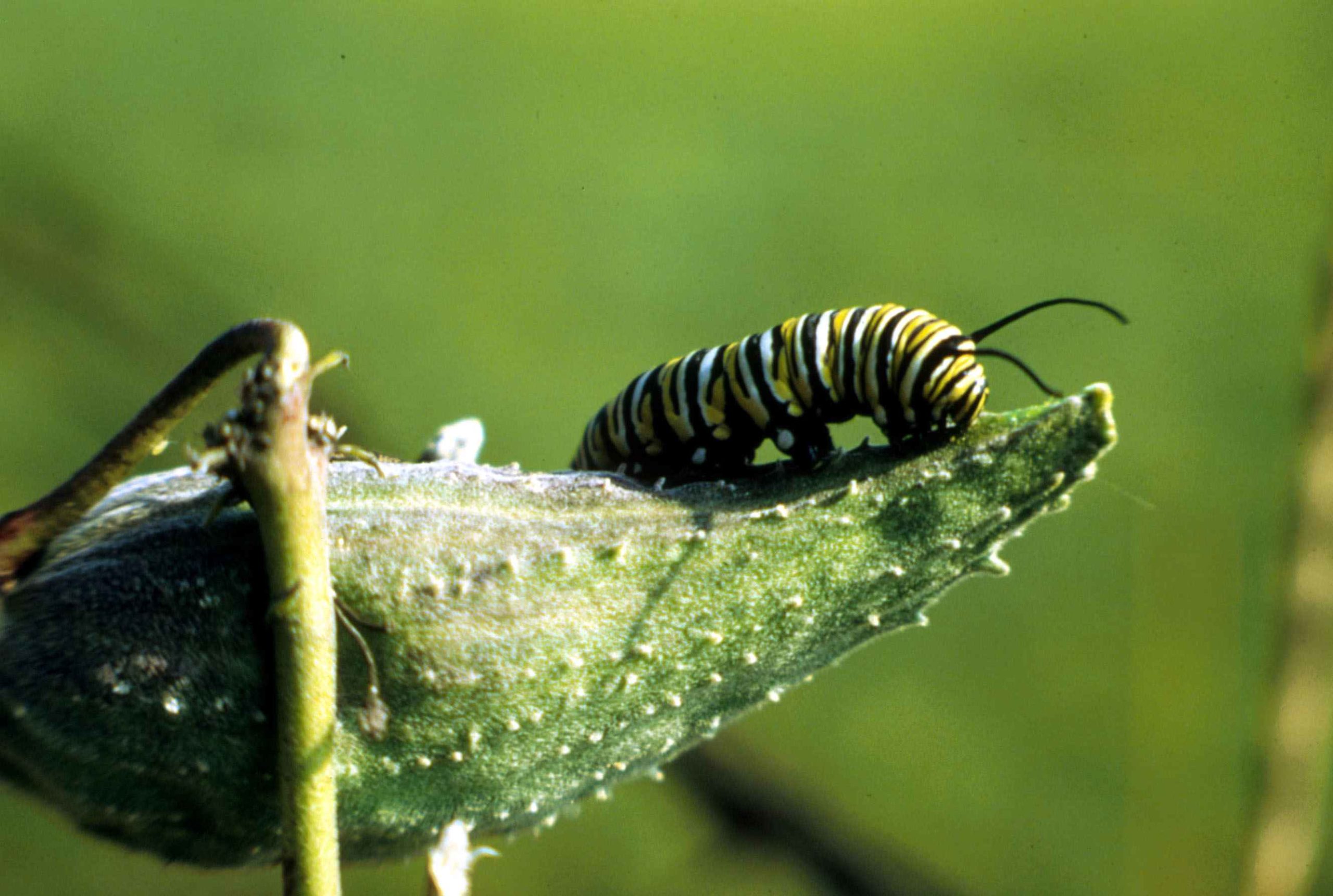
Milkweed, It’s Not Just for Monarchs
June 13, 2022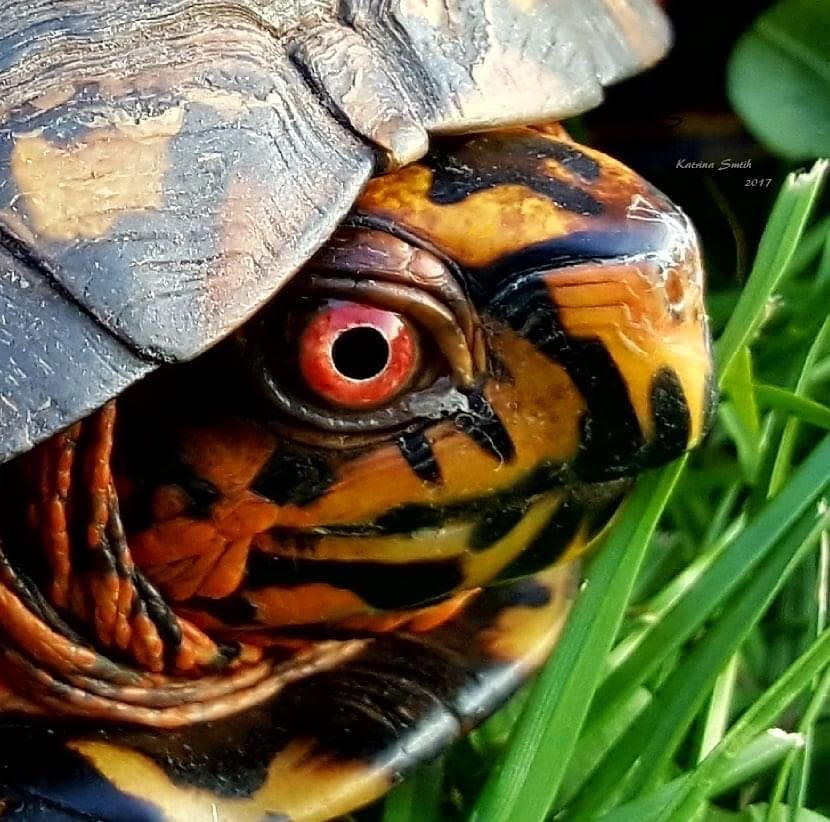
Habitat Hero – June 2022
June 20, 2022By Stacey Wildberger
Another common visitor to milkweed are the very misunderstood carpenter bees. Their large size seems to intimidate folks who often want to destroy them on sight! They are dismissed as having no value when actually they are valuable pollinators. People are often distraught by the damage they perceive they are doing to their wood structures. They typically do not cause structural damage but people get angst about it anyway. Here are a couple of tips to deter them without causing any harm to them.
Their natural home in the wild is in the branches of dead standing trees, if you can leave a snag safely in place in your yard they will naturally use that instead of your decking.
If a snag isn’t available or safe, a small brush pile made up of fallen branches will work just as well or if no branches are readily available purchase some soft pine from the hardware store.
They prefer unpainted surface, so be sure your wood structures are painted (not stained), and fill in nail holes. Spraying the holes after they emerge in the spring by boiling water and soaking citrus peals or rubbing almond oil around the holes can also be an effective deterrent. Please do not do this if they are actively nesting.

They are said not to be a fan of wind chimes so invest in a nice set of wind chimes to keep them from coming too close to your house. Or order a fake wasp nest, or google how to DIY your own fake nest using paper bags. Please find ways to co-exist with these gentle giants. The males CANNOT sting but they are typically the ones with an aggressive behavior, keeping potential enemies away; and the females RARELY sting, only if directly provoked by catching them. The benefits they provide to our ecosystem are far greater than any perceived threat, danger or damage they cause. One of my favorite things to do on a spring or summer evening is observe their little bare bottoms sticking out of my native plants as they do the hard work of pollinating my garden. Be gentle, educate yourself before poisoning these incredibly useful bees!


